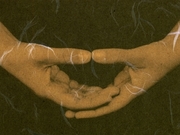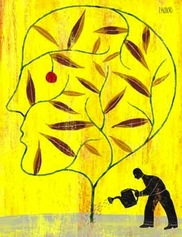
ACT is based on the insight that the more we try to find happiness, the more we suffer. Acceptance is therefore the goal of ACT, which turns out to be the fastest way to happiness anyway.
Study after study shows that actively seeking personal happiness is not actually the way to get there, contrary to the happiness-seeking behaviour our culture reinforces. The world's ancient wisdom traditions, such as Buddhism, Taoism and Vedanta, have also observed this "happiness trap" with clarity for thousands of years, however in modern times it is reassuring to have scientific evidence.
Nevertheless, we are human beings and it is our fate that we must learn our lessons by discovering the truth for ourselves. In The Happiness Trap, Russ points out four myths that lead us in the wrong direction:
Myth 1: Happiness is the natural state for all human beings
Myth 2: If you're not happy, you're defective
Myth 3: To create a better life, you must get rid of negative feelings
Myth 4: You should be able to control what you think and feel
Most clients come to me with two or more of these myths contributing to their unhappiness. Unfortunately, one powerful belief alone is enough to create depression and anxiety in a person already under stress.
What ACT points out effectively is that suffering arises from our beliefs about a given situation, rather than from the situation itself. Further, resistance to the facts of our lives tends to increase our suffering, while acceptance decreases our symptoms over time. By applying mindfulness techniques, we can dramatically change the impact pain is having on our lives, by fundamentally changing our attitude towards that pain.
Ultimately, happiness is a kind of peacefulness that arises when we accept our challenges and find ways to live personally meaningful lives. Whatever our suffering, we still have freedom to choose our response. For living examples of this, read Victor Frankl's Man's Search for Meaning, or the Dalai Lama's Freedom in Exile. Look at Stephen Hawking or motivational speaker Nick Vujicic.
I don't mean to make this sound easy (although sometimes it is easier than we think). For me personally, grasping the power of acceptance has been an incomparably rewarding journey. ACT certainly isn't the only way to get there, and it's not the way I chose. However, I applaud the arrival of age-old wisdom into mainstream therapies, and hope that it now supports a wider audience to discover this simple truth: that lasting happiness (or unhappiness) can only come from our attitudes to events, and not from the events themselves.
 RSS Feed
RSS Feed

